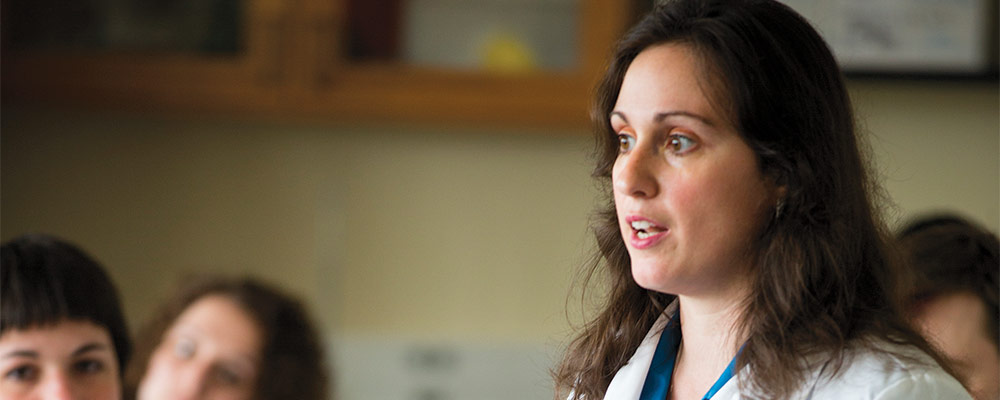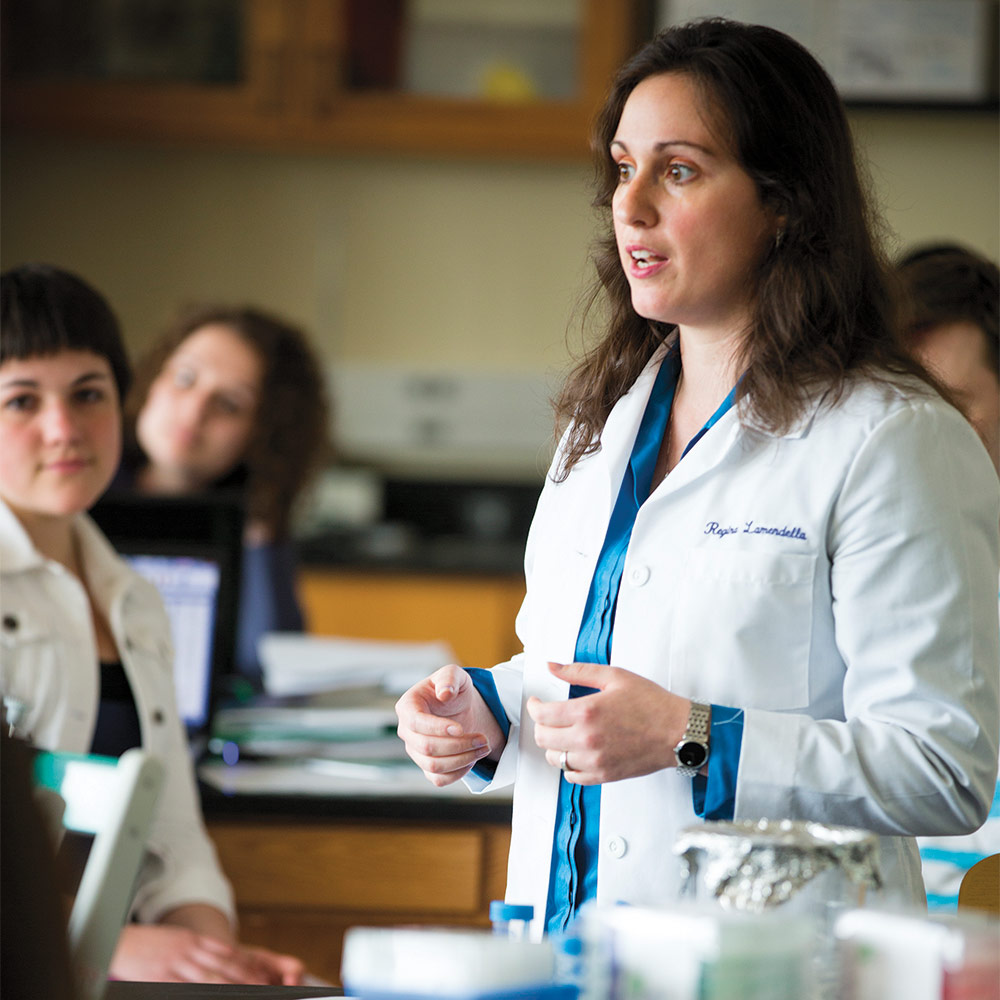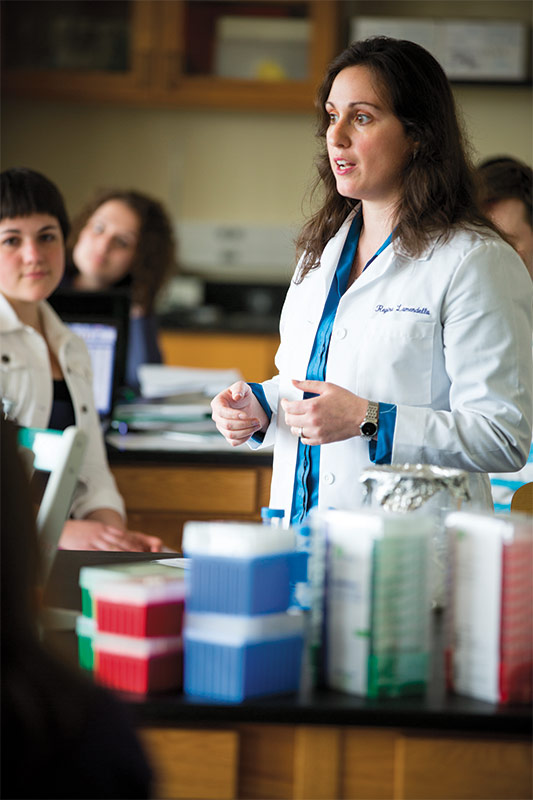Since arriving at Juniata, Lamendella has established a robust research program, using undergraduate students to study fracking impacts on streams and fisheries, Superstorm Sandy runoff effects, microbial communities, the neo-natal microbiome, and mercury concentrations in brook trout.
“As a freshman, I was relatively naïve about the possibility of research as a career,” says Rebekah Ford ’19, of Souderton, Pa. “After my first advising session with my adviser (Lamendella), I was amazed that there was an exciting, viable, and constantly changing career in research.”
Lamendella joined the Juniata faculty in 2012 as assistant professor of biology. She previously worked as a postdoctoral fellow at the Lawrence Berkeley National Laboratory in Berkeley, Calif. She earned a bachelor’s degree in biology in 2004 from Lafayette College in Easton, Pa., and went on to earn two master’s degrees from the University of Cincinnati: one in 2006 in environmental science, and one in 2011 in molecular genetics, biochemistry, and microbiology. She earned a doctoral degree in environmental science from the University of Cincinnati in 2009.
“After my first advising session with Professor Lamendella, I was amazed that there was an exciting, viable, and constantly changing career in research.”Rebekah Ford ’19, of Souderton, Pa.
Her research focuses on how to design and implement novel molecular-based detection methods to track sources of fecal contamination in the environment. She has also researched molecular microbial ecology approaches to better understand the role of microbes in human health and the environment.
She has secured more than $1 million in research funding from a variety of sources, including the U.S. Department of Energy’s Joint Genome Institute, the University of Colorado’s Earth Microbiome Project, King Abdullah University of Science and Technology, the National Science Foundation, and the Merck Investigator Studies Program.
Her previous research experience is extensive, including a job as a private contractor for the Environmental Protection Agency (EPA) in 2009. She also served as an EPA graduate student trainee from 2004 to 2008. As an undergraduate, she was an EXCEL Research Scholar from 2003 to 2004 and a Robert Hunt Research Fellow from 2002 to 2003.
At Juniata, she teaches courses in microbiology, biology research, dynamics and biological processes, as well as other biology courses.
Lamendella received the 2011 Science and Technology Achievement Award from the Environmental Protection Agency and the SPOT Recognition Award for Exceptional Research Contributions from the Lawrence Berkeley National Laboratory.
She is a member of the American Society of Microbiology, International Society for Microbial Ecology, Graduate Women in Science organization, and the Water Management Association of Ohio.







